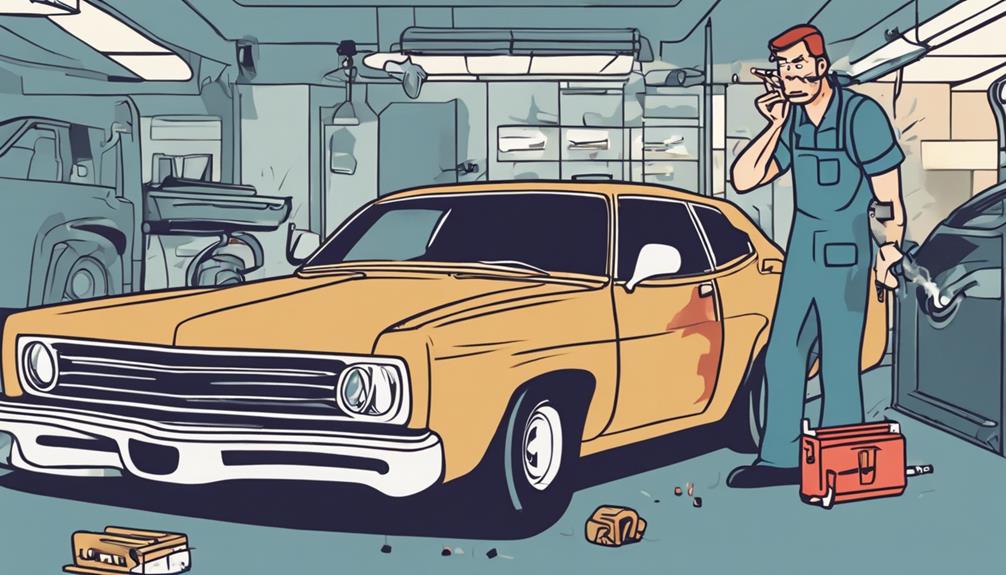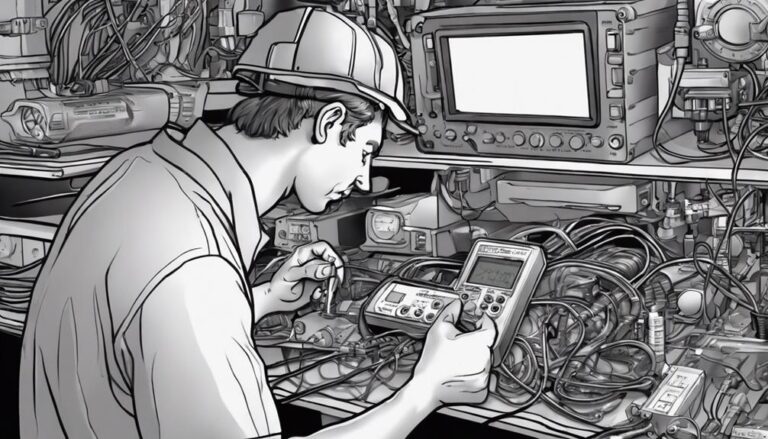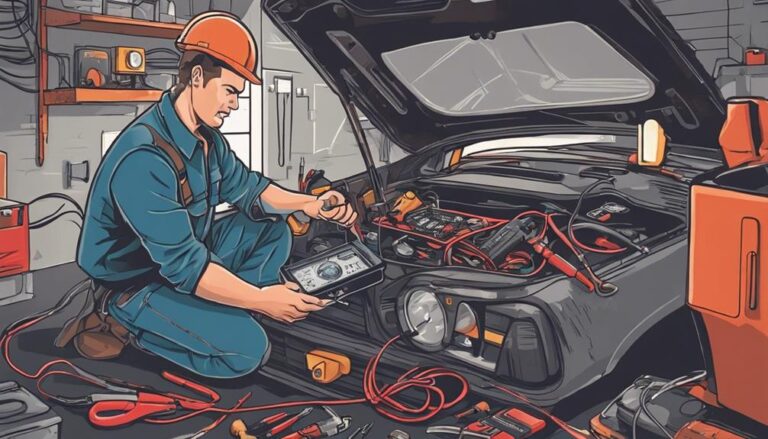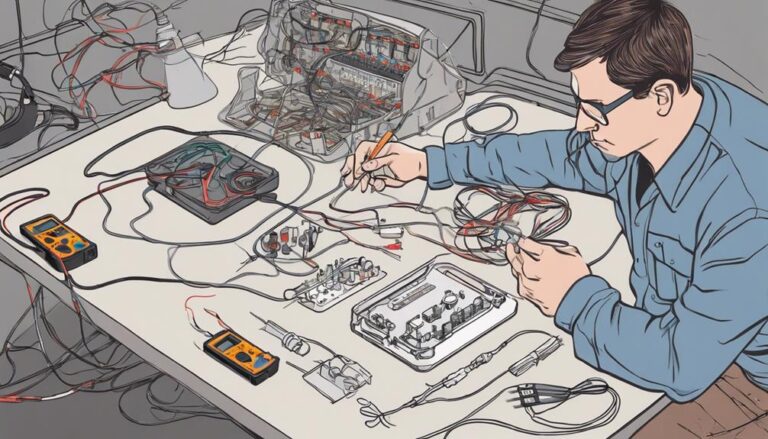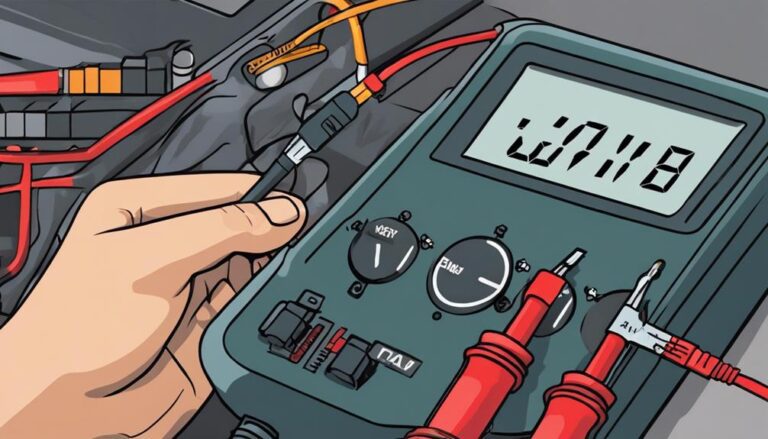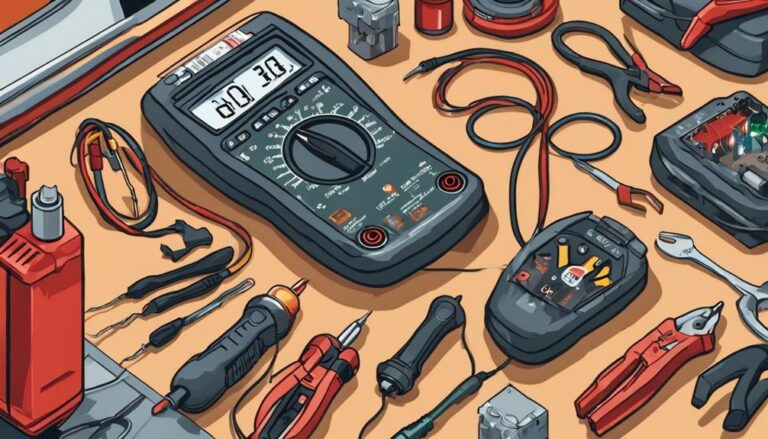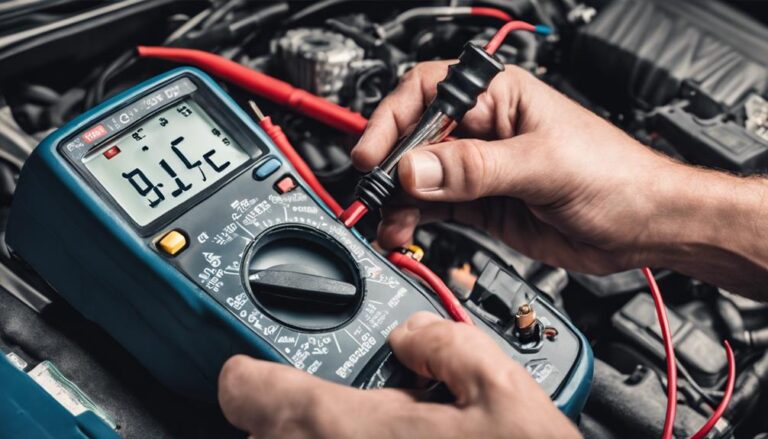Common Causes of Car Electrical Failures
You may think that car electrical failures are rare, but in reality, they are more common than you might imagine.
From dead batteries to faulty wiring, the reasons behind these issues can be varied and sometimes unexpected.
Understanding these common causes can save you time, money, and frustration when dealing with car troubles.
So, let's dive into the world of car electrical failures and uncover what you need to know to keep your vehicle running smoothly.
Key Takeaways
- Regular maintenance prevents unexpected electrical failures.
- Timely troubleshooting of charging system crucial for prevention.
- Proper insulation and wiring checks avoid common issues.
- Prompt fuse box replacement prevents ongoing electrical problems.
Dead Battery
If you experience dim interior lights, engine stalling, or notice the battery warning light illuminating while driving, you may be dealing with a dead battery. Proper battery maintenance is crucial in preventing such issues.
To maintain your battery, ensure it's securely fastened, avoid extreme temperatures, and take long trips to keep it charged.
However, if you find yourself facing a dead battery, jump-starting is a common solution. When jump-starting a car, connect the red jumper cable to the positive terminal of the dead battery and the other end to the positive terminal of the working battery. Then, connect the black cable to the negative terminal of the working battery and the other end to an unpainted metal surface on the car with the dead battery.
Once the vehicles are connected, start the engine of the working car and let it run for a few minutes before attempting to start the car with the dead battery.
Malfunctioning Alternator
Experiencing power warning lights while driving or noticing changes in your vehicle's electricity supply could indicate a malfunctioning alternator, a critical component in your car's electrical system. The alternator plays a crucial role in keeping the battery charged and the electrical system running smoothly. Here are some key points to consider regarding a malfunctioning alternator:
- Voltage Fluctuations: A failing alternator can lead to voltage fluctuations, affecting the overall performance of your vehicle's electrical components.
- Maintenance: Regular maintenance of the alternator and charging system is essential to prevent unexpected failures and costly repairs.
- Charging System Troubleshooting: If you suspect issues with your alternator, it's important to troubleshoot the charging system promptly to identify and address any problems before they escalate.
Being proactive in addressing alternator issues through proper maintenance and timely repairs can save you from potential breakdowns and extensive repair costs. Remember, a well-functioning alternator is key to a healthy electrical system in your vehicle.
Faulty Starter Motor
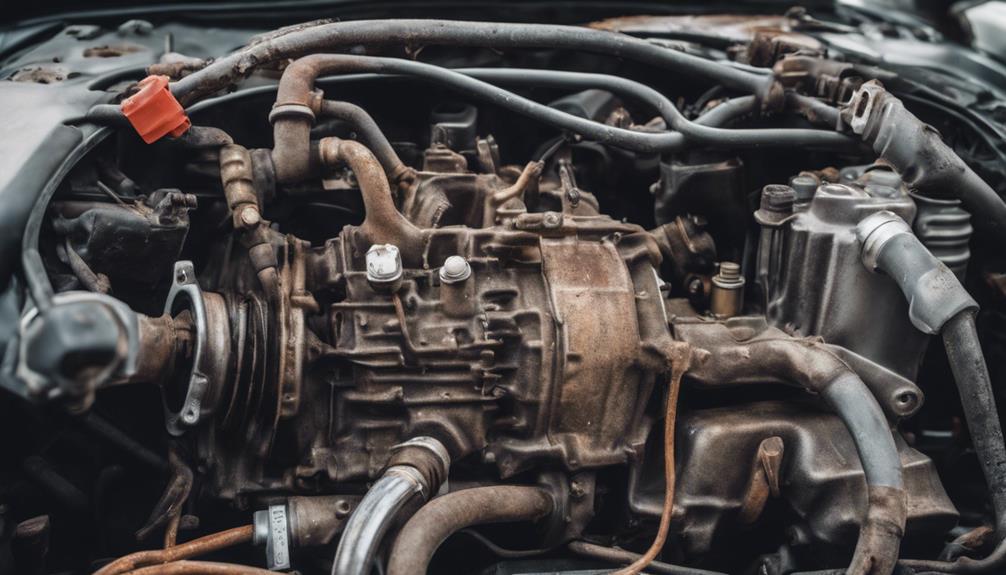
When diagnosing a faulty starter motor in your vehicle, listen for a clicking noise upon turning the key to start the engine. This clicking sound indicates that the starter motor is not engaging properly. Common symptoms of a faulty starter motor include the engine not turning over and a whirring noise that may indicate a solenoid issue. The starter motor works in conjunction with the ignition switch and starter solenoid to initiate the engine's operation. Causes of a faulty starter motor can range from faulty wiring to breakdown of mechanical parts, dirt, rust, or oil leaks affecting its functionality. To prevent starter motor issues, ensure your battery is free of corrosion, check that the battery and fuses are functioning well, and try to avoid frequent stopping and starting which can put extra strain on the starter motor.
| Starter Motor Issues | Causes |
|---|---|
| Clicking noise when starting | Faulty wiring |
| Engine not turning over | Mechanical breakdown |
| Whirring noise | Dirt, rust, or oil leaks |
Bad Fuse Box
A malfunctioning fuse box poses a critical risk to your vehicle's electrical system, potentially causing various issues such as failing fuses, loose connections, and water damage. When dealing with a bad fuse box, consider the following:
- Fuse box replacement: If you notice symptoms like ongoing electrical issues or frequent fuse problems, prompt replacement is essential to prevent further damage to the electrical system.
- Electrical system maintenance: Regularly checking for failing fuses, addressing loose wires, and consulting a mechanic for recurring fuse issues can help maintain the health of your vehicle's electrical system.
- Cost implications: On average, the repair cost for replacing a bad fuse box is around $125, making it a relatively affordable fix compared to potential damages resulting from prolonged neglect.
To ensure your vehicle's electrical components operate smoothly and avoid costly repairs, prioritize timely fuse box replacements and proactive electrical system maintenance.
Wiring Problems
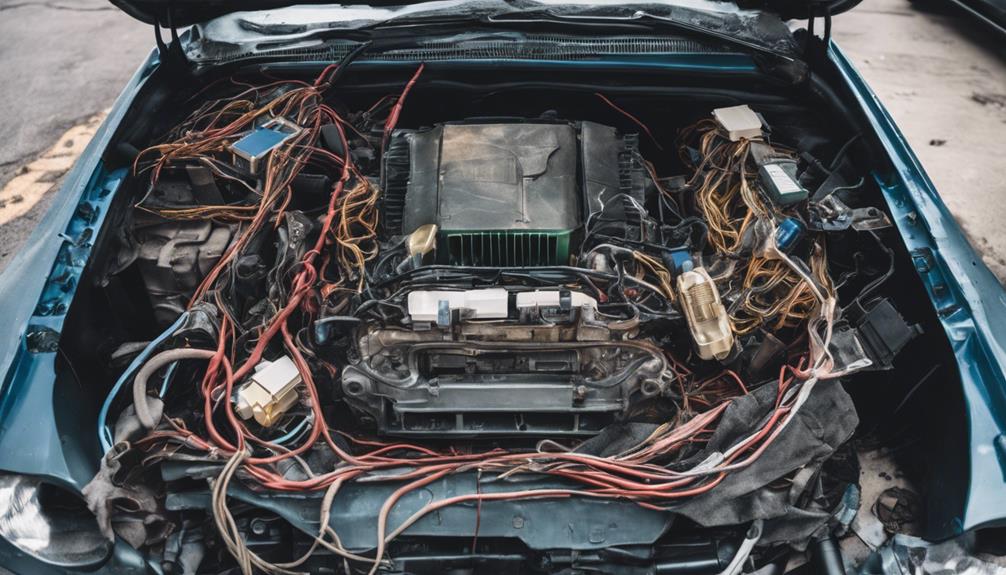
Wiring problems in your vehicle can manifest through symptoms such as flickering lights, burning plastic smells, issues with starting, and blown fuses. Rodent damage is a common issue leading to wiring problems. Rodents like to gnaw on wires, causing shorts or breaks in the electrical system. To prevent this, consider using rodent deterrents or parking in a garage.
Another cause of wiring problems is corrosion. Over time, exposed wires can corrode due to moisture or salt, leading to poor electrical connections. Regular maintenance, such as cleaning and applying dielectric grease to connections, can help prevent corrosion.
Additionally, checking for loose or damaged wires is crucial. Vibrations from driving can loosen connections or cause wires to fray. Ensuring all wires are properly secured and insulated can prevent potential electrical failures. By addressing these factors promptly and incorporating preventive measures, you can minimize the risk of wiring problems in your vehicle.
Frequently Asked Questions
What Is the Most Common Cause of Electrical Problems in Cars?
The most common cause of electrical problems in cars is a dead or weak battery. It can lead to dim headlights, engine starting issues, and warning lights. Regular maintenance and prompt addressing of battery issues can prevent complex electrical failures.
What Are Most Automotive Electrical Problems Caused By?
When your vehicle's electrical system falters, battery issues and wiring faults can be culprits. Alternator failures and fuse malfunctions can also disrupt your car's power. Identifying these key sources can keep your ride running smoothly.
How Do I Find Out What Electrical Problems My Car Has?
To find out what electrical problems your car has, use diagnostic tools to scan for trouble codes. Check wiring, fuses, battery, alternator for issues. Troubleshooting with a professional can pinpoint and resolve electrical faults accurately.
How Do You Trace Electrical Problems in a Car?
When tracing car electrical problems, start with voltage fluctuations and wiring issues. Use testing methods to identify component malfunction. Remember, "An ounce of prevention is worth a pound of cure" when it comes to car maintenance.
Conclusion
As you navigate the road of car ownership, remember that electrical failures are like dark clouds on a stormy day. They can appear suddenly, causing chaos and confusion.
But fear not, for with proper care and attention, you can be the shining beacon of light that guides your vehicle through any electrical storm.
Stay vigilant, stay prepared, and may your car always be a beacon of reliability on your journey.

